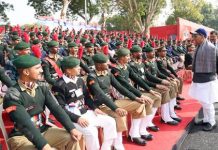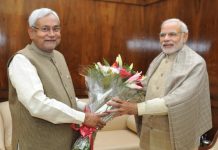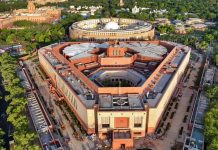With the Tamil Nadu Assembly having adopted the resolution against the Central government’s proposed ‘One Nation, One Election’ policy, the spotlight is once again on the debate over the feasibility of this ‘critical reform’ that the Prime Minister Narendra Modi-led regime is keen to go ahead with.
While the resolution moved by Tamil Nadu Chief Minister M.K. Stalin highlights various points of ‘objections’ to the move, it ‘conveniently’ chooses to ignore the benefits that the proposed electoral exercise offers.
‘One Nation, One Election’ refers to the idea of simultaneously holding the general and state elections. A high-level committee (HLC), headed by former President of India, Ram Nath Kovind, is already in the process of exploring the possibility of ‘One Nation, One Election’.
The panel constituted by the Modi government has so far consulted a galaxy of constitutional and legal luminaries of the country as part of the exercise. The panel has held fresh consultations with the state election commissions this week in a bid to expedite the process.
The parties opposed to this reform agenda of the Modi government have not yet offered any substantial ground to punch holes in this plan. They appear to be deliberately trying to shift the public focus away from the positive sides of this endeavour that the government has so far showcased.
One of the most important benefits that the Tamil Nadu Assembly seems to have overlooked while passing the resolution against ‘One Nation, One Election’ is that synchronising the Lok Sabha and Assembly election cycles will help the government fast-track the development schemes and the programmes aimed at augmentation of financial system of the country and the states.
These are the two major areas which happen to suffer the most in the existing system of scattered polls, which is what the Modi government aims to do away with.
Secondly, holding general and state elections together will also result in toning up of the governance efficacy that gets affected badly due to poll processes taking place throughout the year, either in one state or another.
Who is going to benefit the most if the efficiency level of the governments is ramped up? Who is going to be the main beneficiary if the cost on polls gets reduced? Obviously, it is the common people of the country.
There is no denying that holding an election is an expensive exercise, given the huge cost that every single poll, be it that of Lok Sabha or Assembly, puts on the state exchequer. The huge amount of money spent on holding elections in a scattered manner can be used for greater development and better governance.











